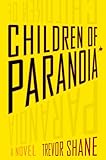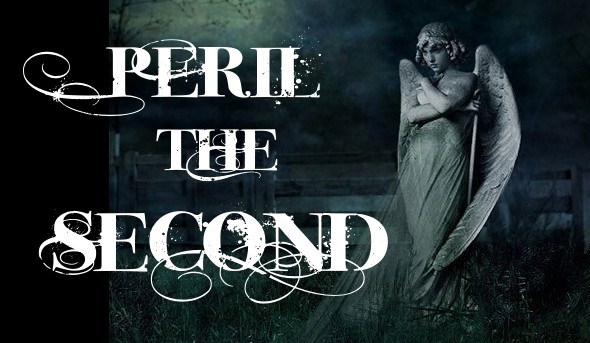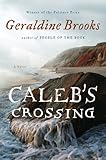[amazon_link id=”0062015834″ target=”_blank” container=”” container_class=”” ] [/amazon_link]Title – Q: A Novel
[/amazon_link]Title – Q: A Novel
Author : Evan Mandery
Genre : Contemporary Fiction
Publisher : Harper Collins
Pages : 368
Rating : 4.5/5
Source : NetGalley/Publisher ARC
If you knew what your future had in store would you change the present to make it better ? Quite the question, isn’t it ? Evan Mandery weaves his novel around just such a premise. The blurb about this book seemed really enticing : a man is informed of future not-so-pleasant events in his life, and is advised to make different decisions to avoid them. Will he follow this advice and will this indeed make him happier ?
The main protagonist remains unnamed, only know as I (he is the narrator). I, a writer and a professor, is in love with Q (Quentina Elizabeth Deveril). Q is the love of his life, filled with radiance and grace and supremely sure and confident of herself. The fly in the ointment ? Q’s arrogant father John Deveril to whom Q is devoted, as he is to her. It’s a small irritant though since I and Q are soul-mates and are shortly engaged. The marriage is coming soon. However right before the impending marriage, I is visited by a future version of himself, a saddened man. I-60, as we call him (he is I at 60 years of age) tells him that for the sake of happiness in the future, I must do the hardest thing possible now – he must not marry Q . . .
This is quite a spectacular book, and I do not use that word often. The writing is detailed and precise and vivid. The characters are well-sketched and strong, and the story is whimsical and real all at the same time. The descriptions are wonderful – so much so that I can almost see what I is seeing :
I am disappointed by how I, the older I, that is, look. I do not look terrible, but I do not look spectacular either. I m particularly dismayed that my body proves susceptible to some ravages of age from which I thought I would be immune. . . I do not consider myself extraordinarily vain. I look at myself in the mirror when I shave or after I get back from the gym, but I do not spend all that much time examining the vessel in which I reside. Still, I know myself well enough. What is most disturbing about this future version of me is that it is obvious, at least to me, that I am deeply and profoundly sad.
Mandery projects I’s feelings beautifully – what I thinks and feels is clear to us, and we stumble along with him seeking happiness and trying to avoid the pitfalls that pepper his life. He seems like the average Joe, except that he is given the gift of foresight – knowing what will happen down the road, should he continue down the path he already is on. Is it really a gift or a curse ? If we know the future, should we make attempts to change it ? Mandery spins a story around such philosophical concerns, by having our hero face just such a predicament.
Other characters in this book are built up via I’s narration. We know of Q because I is so in love with her, and she is the best thing that has happened to him. There is no one quite like her. So when he is asked to leave her, we fear devastating heart-break. Q’s parents, John and Joan, also important cogs in the wheel, are well-sketched.
I’s future versions, and there are a few of them : I-60, I-70. I-55 . . . get more numerous as time goes by, and they are described through present-day’s I. He compares himself to them, their clothes, demeanor and attitude. Some are thick-jowled and some are disheveled. In some he detects the strains of poverty and in others he sees arrogance and tight-fistedness. And in all of them he sees himself. Disbelieving when first faced with I-60, I suspects a prank or a trick, but when he realizes that I-60 is the real thing, he knows that something is seriously wrong. After all I-60 is himself, just older and wiser, and he would not undertake an expensive time-travel jaunt, if it did not matter so much, would he ?
Mandery not only describes love well (quite a hard thing to do), but he is also incisive (like in interactions between I and John) and humorous and whimsical, as in the meeting between I and his counterparts from the future. The only (minor) irritant here are the excerpts from I’s writing (I is a novelist and also tries his hand at short stories). I haven’t actually ever read any other book which reproduced fiction by a fictional character in the book itself. I did not care too much for these excerpts and fail to see the impact this had on the novel.
Still, this book worked for me chiefly because of the fluid writing. It sounds corny, but the writing was almost magical. I loved the way Mandery groups words together, setting them so that each one seems perfect in it’s place. I am truly enamored.
I and Q are two great characters, and you wish for their happiness together. I is a good man – a little unsure, a little wishy-washy and impractical; the philosophical professor plodding along in life. Then of course there is the time travel, which I’m a sucker for. Time travel in the book is not really explained – it just is. Future versions of I visit him because time-travel is possible in their time, although they profess to have no knowledge of the physics of the thing. Plus this is a love story, not one filled with fluffy, flaky notions of love, but one grounded in real sentiment, and of meeting and letting go of that one person, who you know is made for you.
A wonderful book, I highly recommend Q: A Novel.
P.S. : This book is also known by a slightly different title – Q: A (Timeless) Love Story.
 This is my first Sunday Salon post (see title of post; I felt like adding a few more exclamation marks, and some audio of a blaring trumpet, but didn’t :-)), and I really like the idea of summing up my Reading Week. Virtual Salon it might be, but how nice to be able to read everyone’s reading-related thoughts on, what one imagines might be, a relaxed Sunday afternoon – right before the madness starts all over again on Monday.
This is my first Sunday Salon post (see title of post; I felt like adding a few more exclamation marks, and some audio of a blaring trumpet, but didn’t :-)), and I really like the idea of summing up my Reading Week. Virtual Salon it might be, but how nice to be able to read everyone’s reading-related thoughts on, what one imagines might be, a relaxed Sunday afternoon – right before the madness starts all over again on Monday. [/amazon_link]For starters, I’m kind of pleased with myself, because my to-be-read ARC pile is reducing, and I’ve even managed to slip in a non-ARC book into my reading. I just finished reading “Children of Paranoia” by Trevor Shane, which was an ARC via the folks at Dutton. I quite liked it, and will post the review later this week. Am currently reading Magebane by Lee Arthur Chane (a DAW ARC), and this is turning out very nicely too. I’m taking part in the R.I.P. Reading Challenge, so both these books count towards it. The non-ARC that I recently read was Alexander McCall Smith’s “The Saturday Big Tent Wedding Party” which I loved so much that I made a post of the excerpts that I wanted to remember. So, yes, I’ve been having a good reading streak.
[/amazon_link]For starters, I’m kind of pleased with myself, because my to-be-read ARC pile is reducing, and I’ve even managed to slip in a non-ARC book into my reading. I just finished reading “Children of Paranoia” by Trevor Shane, which was an ARC via the folks at Dutton. I quite liked it, and will post the review later this week. Am currently reading Magebane by Lee Arthur Chane (a DAW ARC), and this is turning out very nicely too. I’m taking part in the R.I.P. Reading Challenge, so both these books count towards it. The non-ARC that I recently read was Alexander McCall Smith’s “The Saturday Big Tent Wedding Party” which I loved so much that I made a post of the excerpts that I wanted to remember. So, yes, I’ve been having a good reading streak.
 [/amazon_link]Author : George Pelecanos
[/amazon_link]Author : George Pelecanos
 [/amazon_link]Title : Rules of Civility
[/amazon_link]Title : Rules of Civility [/amazon_link]Title : 22 Britannia Read
[/amazon_link]Title : 22 Britannia Read [/amazon_link]Title – Q: A Novel
[/amazon_link]Title – Q: A Novel [/amazon_link]Title : Caleb’s Crossing
[/amazon_link]Title : Caleb’s Crossing
